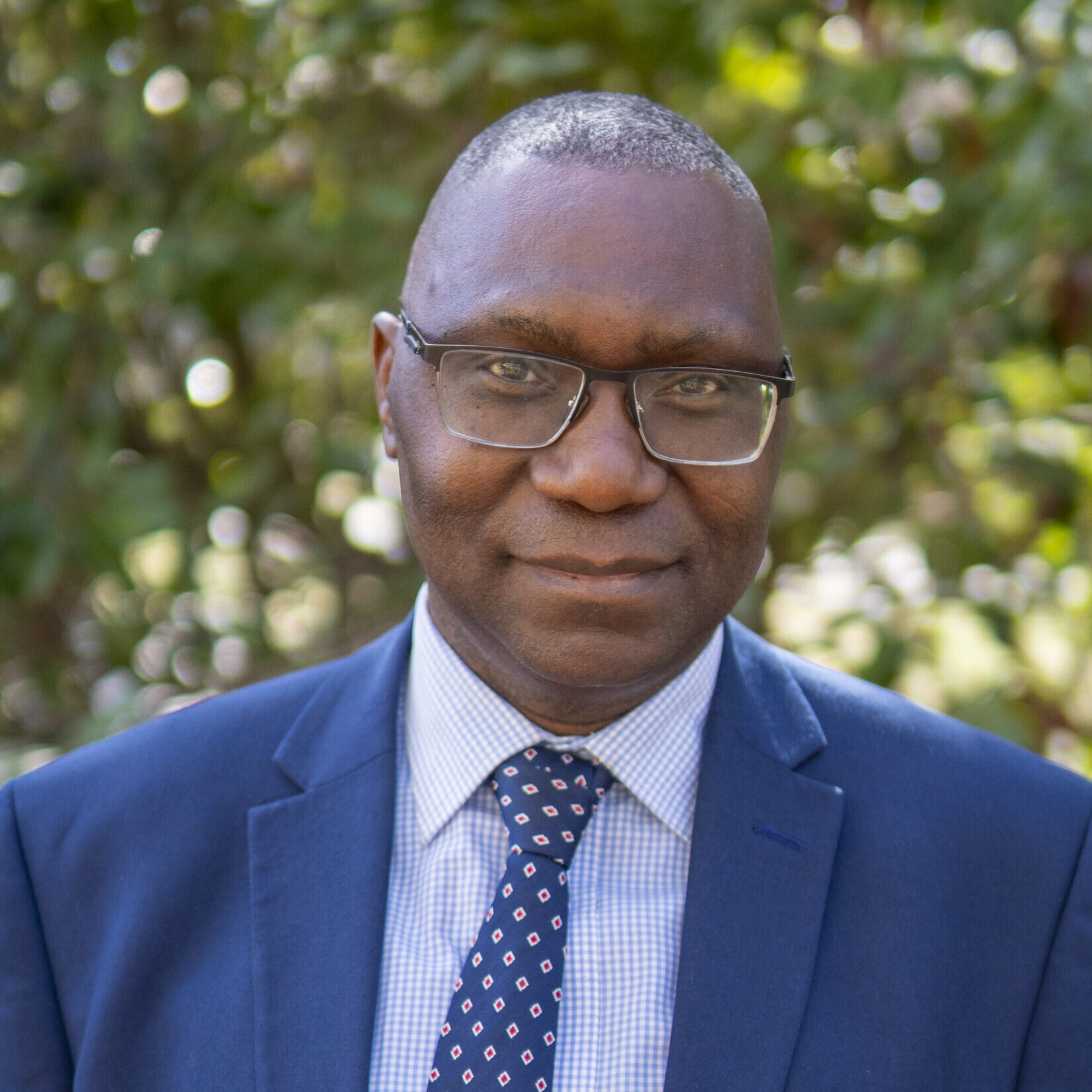Khumbo Kalua

Academic Rank(s)
Associate Professor M.B.B.S, MMed, MSc, PhD
Phone
khumbo.kalua@ubc.ca
Location
2206 East Mall Vancouver, BC V6T 1Z3
Dr. Khumbo Kalua’s research focuses on Global Health, Global Eye Health and Neglected Tropical Diseases (NTD), within the context of Social Determinants of Health and Universal Health Coverage. He has over 20 years’ experience working in the academic, government and Non-Governmental Organization (NGO).
Dr. Kalua has a special interest in low-income countries and focuses on his research mainly in Sub-Saharan Africa. Current work focuses on epidemiology and elimination of Trachoma, Soil Transmitted Helminthiasis and Schistosomiasis, and global blindness prevention programs, and contributes to the global goal of ending the neglect to attain the Sustainable Development Goals (SDGs).
He is a qualitative and mixed methodologist with an interdisciplinary background that spans Implementation Science, Cluster Randomized Clinical Trials, Epidemiology, Global Eye Health, and general Global Health.
He has been a consultant on Neglected Tropical diseases and Global Eye Health for the World Health Organization (WHO) and many other organizations for many years, and as part of his work, he has extensively travelled to all continents of the world visiting over 20 countries.
- Sir John Wilson Fellowship (2008)
- The Queen Elizabeth Diamond Jubilee Trust (QEDJT) award for Trachoma (2019)
- College of Ophthalmologists of East Central and Southern Africa (COECSA) Scholarly Award (2022)
- Fellow of College of Ophthalmologists of East Central and Southern Africa (COECSA)
- Fellow of International Council of Ophthalmology
- Member of the International Agency for the Prevention of Blindness (IAPB)
Most of Dr. Kalua’s research has involved large studies involving many countries and multiple stakeholders.
The DeWorm3 Study is a series of community cluster randomized controlled trials in 3 countries (Malawi, Benin and India) from 2015-2024 that aim to determine the feasibility of interrupting soil-transmitted helminth transmission (STH) in focal geographical areas by expanding the targeted population and the frequency of mass drug administration with albendazole. These findings will support the development of STH program guidelines and innovative delivery strategies. DeWorm3 is a global project consisting of partners around the world working together towards a common goal of interrupting the transmission of soil-transmitted helminths (STH). From 2015-2020, the Natural History Museum, London (NHM), a world leader in the research of STH and Neglected Tropical Diseases, hosted the project and coordinated this global effort to establish the evidence necessary for informing global implementation guidelines in countries aiming to eliminate STH.
The University of Washington Department of Global Health is currently hosting the project and coordinating the remaining phases of this important work with DeWorm3 partners. Trial sites and support units are led by investigators with extensive research training and expertise in tropical medicine and infectious diseases, and Khumbo Kalua, has been co-leading the Malawi site since 2015.
Results and dissemination are expected to be done from mid to end 2024.
Rapid Assessment of Avoidable Blindness
To plan effective and impactful eye health services, and to ensure no one is left behind, it is vital to understand the needs of a population. The Rapid Assessment of Avoidable Blindness (RAAB) is a population-based survey that drives action to prevent avoidable vision loss through the collection and interpretation of high-quality data. RAAB trainers are integral to RAAB, providing high-quality standardised support to partners throughout their planning, data collection and analysis, and then in the use and dissemination of results. Trainers are independent, and determine their own relationship with partners. Dr Khumbo Kalua has been supporting RAAB surveys in Uganda and Malawi since 2010.
Trachoma is a neglected tropical disease, and the leading infectious cause of blindness. Disease results from ocular infection with the bacterium Chlamydia trachomatis, which is spread by direct contact with eye and nose discharges from infected individuals, by contact with fomites (inanimate objects that carry infectious agents) such as towels and/or washcloths, or by eye-seeking flies.
The estimated number of people living in endemic districts, at risk of trachoma blindness, has declined from 317 million in 2010 to 132 million in 2022, due to a combination of improved data and implementation of SAFE Strategy (Surgery, Antibiotics, Facial cleanliness, Environmental improvement).
Tropical Data, an initiative led by the World Health Organization, provides an end-to-end epidemiological survey support service – from planning and protocol development to training, data processing, health ministry review and approval, and through to application of the survey outputs – to assist national neglected tropical disease programmes. Tropical Data is a consortium of partners that supports health ministries worldwide to conduct globally standardized Trachoma prevalence surveys that conform to World Health Organization recommendations. Tropical data requires certified “Master Trainers” to support countries globally, and Dr Khumbo Kalua has been supporting mainly countries since 2012 (when the project was initially under the Global Trachoma mapping Project).
Since then, eighteen countries – Benin, Cambodia, China, Gambia, Ghana, Islamic Republic of Iran, Iraq, Lao People’s Democratic Republic, Malawi, Mali, Mexico, Morocco, Myanmar, Nepal, Oman, Saudi Arabia, Togo and Vanuatu – have been validated by WHO as having eliminated trachoma as a public health problem.
SPPH 512: The Design and Analysis of Clinical Trials